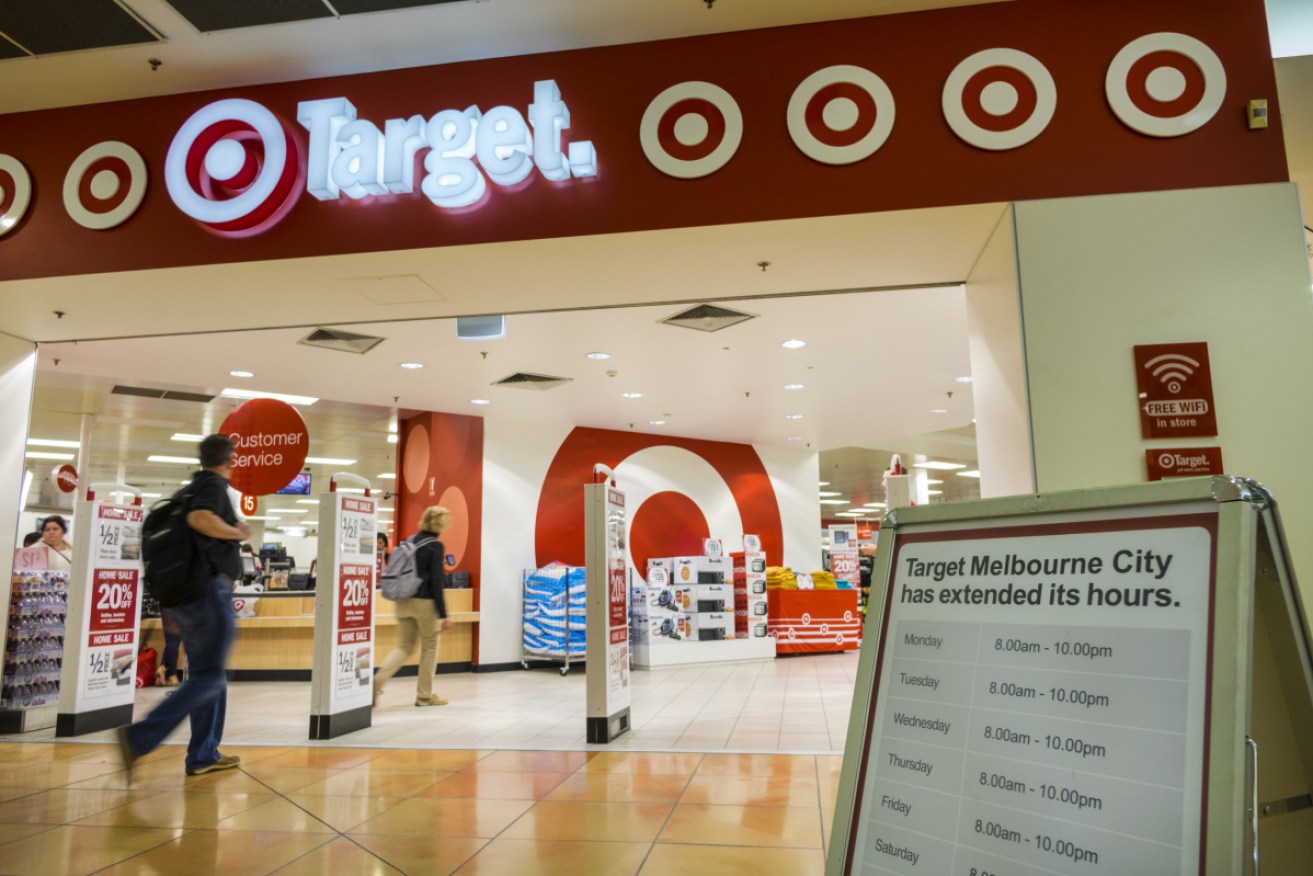Target at risk of becoming coronavirus casualty


Chain department store Target has seen a "significant" earnings drop due to the coronavirus pandemic. Photo: Getty
Department store chain Target could become the next corporate coronavirus casualty after owners Wesfarmers revealed the business’s earnings have “decreased significantly”.
In an update to investors, Wesfarmers cautioned Target has been badly hurt by its “high degree of fixed occupancy costs, a sustained decline in sales momentum”.
Wesfarmers managing director Rob Scott confirmed the company has launched a strategic review of Target in an effort to preserve profitability.
It comes after several years of disappointing sales figures.
“The strategic review is considering all options for the Target business including an accelerated store closure program, the conversion of some stores to Kmart, and other structural options for the Target business,” Mr Scott said.
“The review is an opportunity to review the network, the number and size of stores, to ensure it is fit for purpose.
“We are getting very strong growth in online in Target.
“It’s a great brand, with loyal customers, and a very engaged and loyal team – so there are assets of value we can work with but we need to get the property structure and network right to ensure the cost base is right for the future.”
The review will be completed before June 30.
Fellow Wesfarmers’ department store chain Kmart has also been hit, but so far the brand “remains profitable”, Wesfarmers said.

The coronavirus has emptied Australian shopping centres. Photo: AAP
“In-store sales momentum has moderated in Kmart and has declined significantly in Target, reflecting the broader decline in customer footfall in shopping centres,” the Wesfarmers update said.
Discretionary items such as apparel have so far been the worst affected, and the company expects little relief in the near term.
“These trends are expected to persist while social distancing and isolation measures are in place, and while many tenants and activities within major shopping centres are not operating.”
Retailers facing continued decline
Although Target’s latest woes are attributable to the pandemic, department stores were struggling well before the coronavirus took hold.
Research by KPMG found more than 40 per cent of retailers experienced worse conditions in 2019 than they did in 2018, as more and more shoppers turned to online shopping.
“Worryingly, the number of retailers who said the last 12 months were slightly worse jumped from 19.7 per cent [in 2018], to 32 per cent,” KPMG’s report said.
David Kindl, chair of retail business consultancy Retail Doctor Group, told The New Daily the coronavirus pandemic will only worsen things for business that were struggling before the crisis.
“Any retail business that was weak before the pandemic will be weaker after the pandemic,” Mr Kindl said.
For retailers like Target, which specialise in discretionary goods, this is especially true.
“Target is skewed towards discretionary items, unlike [other Wesfarmers businesses] Kmart or Bunnings which sell homewares and hardware,” he said.
“It’s interesting that Target stores have kept trading through this pandemic.”
Even so, Mr Kindl said the brand has a good chance of surviving the pandemic.
“Target will disappear if it’s irrelevant to its customers, and I think the coronavirus pandemic may perhaps speed that up,” he said.
“But if Target can be relevant to its customers, then it will survive – just as any business will.”
Department stores forced to adapt
Australian Retailers Association chief executive Paul Zahra told The New Daily department stores will likely undergo some significant changes to meet the needs of a post-coronavirus Australia.
This will include “some market consolidation”, Mr Zahra said.
“There’s no doubt COVID-19 [coronavirus] has caused significant pain to retail operations across the board,” he said.
“In many instances, COVID-19 has intensified existing challenges, creating greater impetus for changes already on the table – for example strengthening omni-channel presence, reducing store footprints and exploring new delivery options.”
So far, efforts by government to support businesses (notably the JobKeeper wage subsidy program) have helped.
But retailers will still need to take some “painful steps” to ensure their long-term survival, Mr Zahra said.
“The COVID period will also create an opportunity for larger stores to do things differently, in many cases more efficiently and more creatively,” he said.
“Customer habits and expectations will naturally change this year as a result of lockdown behaviour.
“Here and overseas we are seeing the emergence of innovations such as retail to go, where department stores and supermarkets are allowing customer options such as rapid kerbside pickup.”









